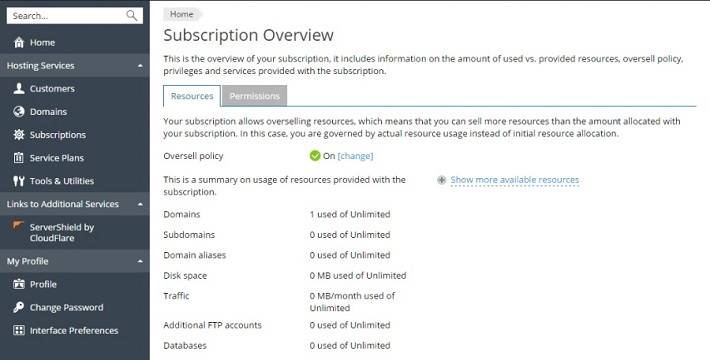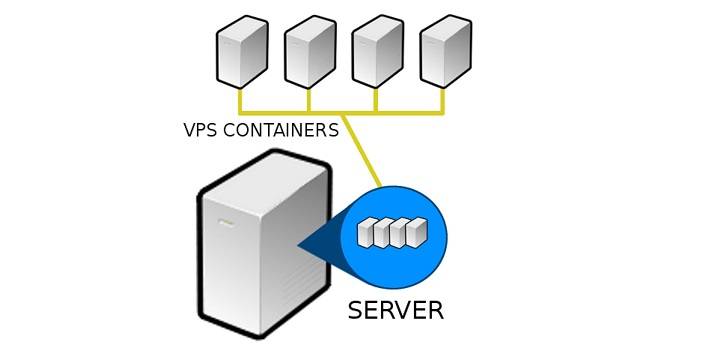The cost of web hosting is one of the biggest influencers on hosting choices for the owner when making a new website.
However, choosing a web hosting plan based on price alone isn’t ideal. Just because a plan is cheap – or expensive – doesn’t mean it’s the right one for you.
Like most other products, web hosting comes in a broad price range. The most significant element that affects prices is the type of web hosting chosen. Understanding these web hosting types can help you choose the best solution for your website.
While web hosting companies may provide a variety of packages, there are only a few basic types of web hosting. Shared hosting is at the low end of the spectrum, while dedicated servers are at the high end.
So, in this article, we’ll look at the four types of web hosting and their prices.
So, let us begin.
Shared Hosting

On shared hosting plans, web hosts generally pack hundreds of user accounts onto each server. This user density means shared hosting can be incredibly cost-effective. They all “share” common resources on the server, including CPU time, memory, disk space, and more.
Advantages of Shared Hosting
Shared hosting accounts will also include a web hosting control panel (WHCP) to help you manage your website. The WHCP is graphic-driven, allowing you to accomplish anything with a few mouse clicks.
Simplicity is essential; everything is ready to go once you purchase a shared hosting plan. You are not required to install core server-side applications such as the web server, database engine, or script environment.
Disadvantages of Shared Hosting
Unfortunately, some of the benefits of shared hosting are also its disadvantages. While having hundreds of users on a single server can save money, it could be better for performance and reliability.
Server resources are limited, and if other websites are using them, this will delay anyone attempting to load your website. It’s a round-robin situation in which the server shuffles resources as needed.
While the WHCP provides greater control, it also prevents you from having granular control over the server. Furthermore, having the entire server ready to go means you cannot control which core applications it runs.
How Much Does Shared Hosting Cost?
Entry-level shared hosting plans typically cost $3 to $4 per month. Prices rise as a result of resource allocation and other factors. Expect to pay between $.570 and $7.50 per month at the mid-tier.
Who Should Use Shared Hosting?
Shared hosting is an excellent choice for those who are new to building and managing websites due to its low cost and ease of management. It can be useful in the following situations:
- Small personal blogs
- Simple, static websites
- Portfolio websites
- low-traffic volume websites.
Quick Tip: While not ideal, some small businesses may be able to use shared hosting as the foundation for new websites as they grow.
Virtual Private Server Hosting

Virtualization enables the creation of isolated virtual private server (VPS) “mini servers” within each physical server. (Source: HostGator)
The next step up from shared hosting is a virtual private server (VPS). Web hosts use virtualization technology to create dozens of “mini servers” within each physical server. Each VPS account is given its own set of system resources.
Advantages of VPS Hosting
The availability of dedicated resources for each VPS account has a significant impact on the characteristics of this type of plan. Having dedicated resources means that websites on VPS plans will perform better and more consistently.
Because each VPS has its own virtual space, you can tailor the environment to your specific requirements. This gives you a lot more flexibility in terms of what you can do with a VPS hosting plan. In addition, the virtual environment provides greater security than shared hosting.
Another benefit of VPS is that the plans are highly scalable. More resources can be added at any time, and it is usually simple to do so. Most web hosts provide a simple configuration tool that allows you to modify system resources.
Disadvantages of VPS Hosting
The main issue with VPS hosting is that it can be extremely difficult to configure, deploy, and manage. Remember, you’re getting an entire virtual server to yourself for all events and purposes.
VPS can be a disaster waiting to happen if the administrator lacks sufficient knowledge of system applications, networking, and other areas required for configuration. A minor misconfiguration can easily expose critical security flaws on your virtual server.
How Much Does VPS Hosting Cost?
The cost of VPS plans varies greatly depending on the number of resources required and the inclusion of optional tools. Adding cPanel licenses to your VPS, for example, can significantly increase costs. Entry-level to mid-tier VPS plans will typically cost between $15 and $28 per month.
Who Should Use VPS Hosting?
VPS’s excellent stability and performance make it ideal for the majority of use cases – as long as you’re willing to pay the price and understand the technology. VPS plans can benefit the following websites:
- Blogs with a larger audience
- affiliate websites
- eCommerce or online stores are well-established business websites.
And more.
Quick Tip: VPS is frequently available in two forms: managed and unmanaged. Managed VPS plans are more expensive, but they are useful for those who want better performance without having to deal with technical deployment and management.
Cloud Hosting
Cloud hosting is similar to VPS hosting in many ways. The difference is that unlike VPS plans on single servers, cloud hosting shifts the emphasis away from hardware and toward resource allocation.
The cloud hosting model combines the resources of multiple servers into a massive pool from which hosts can draw resources.
Advantages of Cloud Hosting
Because Cloud technology makes use of multiple servers and networks, it is the most dependable type of web hosting available. If a storage drive fails, for example, a mirror somewhere else in the Cloud simply takes over.
Disadvantages of Cloud Hosting
Despite the similarities with VPS, the primary concern of CLoud hosting is in a different direction. Because we rarely know where data is stored in the Cloud, legal compliance in some business environments may be difficult.
How Much Does Cloud Hosting Cost?
The cost of cloud hosting varies greatly depending on configuration and service provider. Many web hosting companies provide cloud hosting plans at prices comparable to VPS. Premium service providers, such as Amazon and Google, will be more expensive.
Who Should Use Cloud Hosting?
Cloud hosting is very agile due to its high reliability and customizability. It is appropriate for the majority of use cases, including;
- Websites with a lot of storage
- Application services
- Websites with moderate to high traffic volumes
Quick Tip: Platform as a Service (PaaS) providers such as Cloudways provide cloud hosting plans with a simple management interface on top. This system is extremely convenient, and you can generally select from several Cloud partners.
Dedicated Server Hosting
Dedicated server hosting, as the name implies, provides you with your physical server. These plans are at the top of the food chain and offer the most powerful (but also most expensive) type of web hosting available.
Advantages of Dedicated Server Hosting
Dedicated server hosting shares many characteristics with VPS plans because these are actual physical servers. That means dependable resources for improved performance and dependability, as well as a secure environment.
Disadvantages of Dedicated Server Hosting
Many of the disadvantages of VPS are also present on dedicated servers due to similarities. Without the necessary skills, dedicated hosting will be nearly impossible to configure, deploy, and maintain.
However, the most significant disadvantage is the high cost of dedicated server hosting. Because you own the entire server, you must bear the entire cost. Even if you only use a fraction of the server’s capabilities, you’ll pay the same price.
How Much Does Dedicated Server Hosting Cost?
The cost of dedicated server hosting typically begins in the $80 to $90 range and quickly rises. The price is primarily determined by the server configuration you select. However, keep in mind that you may incur additional costs for application licensing.
Who Should Use Dedicated Server Hosting?
Dedicated hosting can support almost any website imaginable. Again, this is subject to the condition that you can afford it and have the necessary skills to manage the server. Some examples of websites that can thrive on dedicated servers are:
- Large, multi-functional business websites that provide mission-critical services
- eCommerce or online stores with a high volume of transactions
Quick Tip: Unless you require complete data control, cloud hosting plans can be much more cost-effective than a dedicated server. These are typically used as a “last resort” for those who do not have any other options.
Conclusion
Price is a major concern for those who want to run a website because web hosting costs are recurring. However, focusing solely on price may lead to a poor choice of web hosting plan. This may end up costing you more money as you migrate or upgrade away from ineffective plans.
Aside from focusing on different types of hosting plans, the most important question you should ask at the end of the day is, “What does my website require?” Grab a pen and begin your list; you might be surprised by your requirements.
